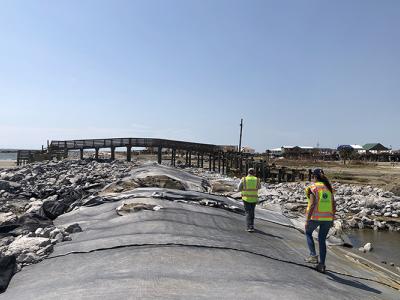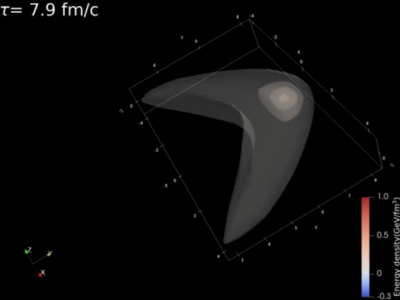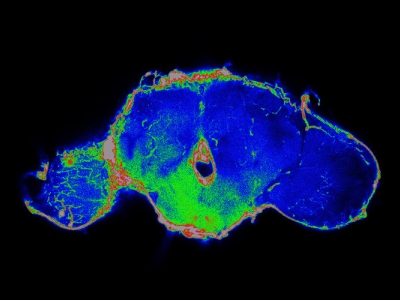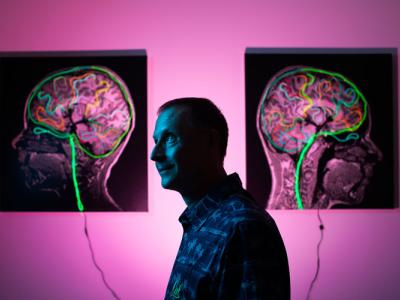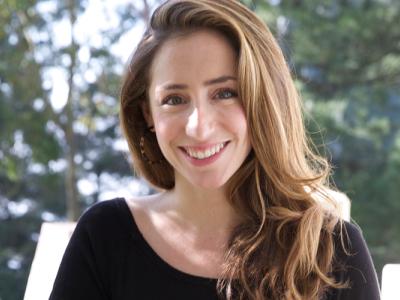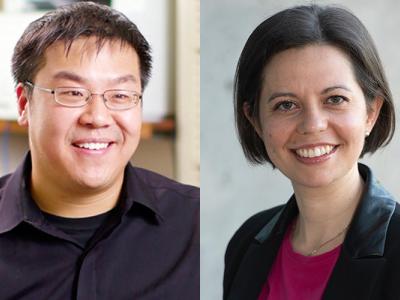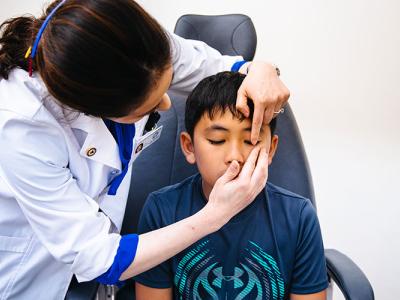To learn more about the impact of Hurricane Ida — and how it compares to the impact of Hurricane Katrina 16 years ago — Berkeley News spoke with civil and environmental engineering professor Adda Athanasopoulos-Zekkos, who traveled to Louisiana last week as part of a team of engineers organized by the National Science Foundation’s Geotechnical Extreme Events Reconnaissance (GEER) Association.
Research News
Learn more about UC Berkeley's researchers and innovators.
Showing 977 - 992 of 3512 Results
Long before sports superstars Naomi Osaka and Simone Biles braved the spotlight to defend their mental health, Graig Chow, a certified mental performance consultant at UC Berkeley, studied the culture that pushes elite athletes like NBA players Chamique Holdsclaw, Kevin Love and DeMar DeRozan to their breaking points.
Scientists have reported new clues to solving a cosmic conundrum: How the quark-gluon plasma – nature’s perfect fluid – evolved into matter.
The experience of a fruit fly dying from cancer may seem worlds away from that of a human with a life-threatening tumor, yet University of California, Berkeley, researchers are finding commonalities between the two that could lead to ways to prolong the lives of cancer patients.
The University of California, Berkeley’s Center for the Science of Psychedelics (BCSP) is benefitting from five philanthropic gifts announced today that provide a total of $7 million to initiate a robust national conversation about psychedelics and society, to commence novel research studies on how psychedelic compounds alter our brain and behavior, and to launch a unique training curriculum for facilitators of the psychedelic experience.
“I never imagined I would lead a mission to Mars,” said Curry, who is deputy associate director for planetary science and astrobiology at SSL. “My focus is to continue executing our mission and achieving our science goals. We have a killer team, so I am looking forward to the next chapter of MAVEN.”
Gerbrand Ceder was recently appointed the Samsung Distinguished Chair in Nanoscience and Nanotechnology Research at UC Berkeley, where he develops novel materials for energy storage.
With Democratic voters energized and far outnumbering California Republicans, Gov. Gavin Newsom appears poised to turn back a recall drive in a vote that closes Tuesday, according to a new poll from the UC Berkeley Institute for Governmental Studies (IGS).
As companies debate the impact of large-scale remote work, a new study of over 61,000 Microsoft employees found that working from home causes workers to become more siloed in how they communicate, engage in fewer real-time conversations, and spend fewer hours in meetings.
Raffaella Margutti, a newly arrived associate professor of astronomy, and Norman Yao, an assistant professor of physics, are among nine winners of the 2022 New Horizons in Physics Prize, awarded every year to early-career scientists by the Breakthrough Prize Foundation.
For tens of millions of Americans alive on Sept. 11, 2001, the images are indelible: Flames exploding from a tower of the World Trade Center against a brilliant blue sky. In the shock that followed those terror attacks, it was common to imagine that the world had changed forever. Just how, exactly, no one could know. Twenty years later, after so many other turns of history, the ragged withdrawal of U.S. troops from Afghanistan is a reminder of how the nation has struggled to answer the attacks.
The University of California, Berkeley, today announced that the Dr. Herbert and Nicole Wertheim Family Foundation has pledged a historic $50 million to the UC Berkeley School of Optometry, the largest gift ever to be received by a school of optometry in the country.
New group will consist of experienced cybersecurity and election security experts, election administrators and engineers to explore new voting methods that expand the ease and accessibility of voting.
A new analysis by researchers at the UC Berkeley School of Public Health shows that Black youth in California experience disproportionate injuries at the hands of law enforcement, with Black boys and Black girls aged 10-14 injured at 5.3 and 6.7 times the rate for White boys and White girls, respectively, in the same age group.
The amount of air pollution in a community depends greatly on its proximity to emission sources, such as automobiles, factories and power plants. Now, a group of researchers — led by Joshua Apte, UC Berkeley assistant professor in the Department of Civil and Environmental Engineering and in the School of Public Health — has shown that levels of air pollution vary not only by region, such as between urban and rural areas, but by city block.
A gecko’s tail is a wondrous and versatile thing.

